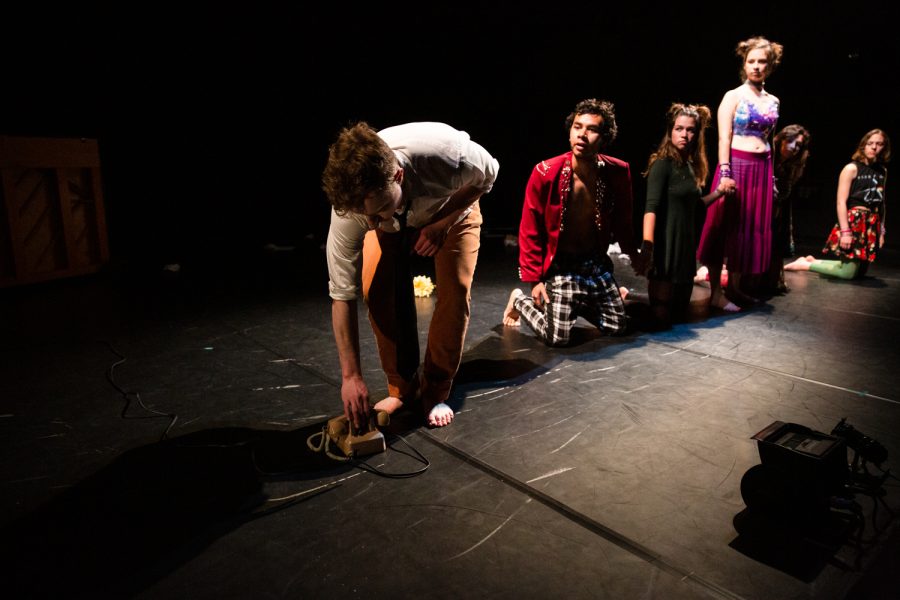“Placeholder”: Addressing Settler-Colonialism Through Dance
April 4, 2019
From April 4-7, Harper Joy Theater debuts the 2019 spring dance concert, titled “Placeholder.” The mixed-bill concert features dance pieces from Whitman dance faculty Renée Archibald and Peter de Grasse, entitled “Peeel” and “Flowerbomb,” respectively. Additionally, the event presents guest artist and O’Donnell Visiting Educator Hadar Ahuvia’s, “Moving Frontier.”
Though each piece is marked by different meaning and movements, they are secured together by the need for discourse on the relationships between land, sense of place, identity and the body.
“I named the dance concert “Placeholder,” recognizing that Whitman is interested in the politics of the land that the college occupies,” said Archibald.
Ahuvia also remarks on the importance of tying the dance piece to this particular place. “We’ve talked about how Israel-Palestine is just one example of settler-colonialism, and thinking about settler-colonialism here and the history of Walla Walla and Whitman, and trying to draw parallels, not equivalencies between these things,” said Ahuvia.
Though her work draws from Israeli folk dance, Ahuvia works to create pieces that analyze the emergence and appropriation of traditional dances. Based in Brooklyn, her work draws on themes such as settler-colonialism, popular culture and contemporary Jewish identity.
During the production process, “Moving Frontier” evolved to incorporate the essences of the dancers. On working with student dancers, Ahuvia said:
“I tried to bring them into the world that I’ve been thinking of, but then I also paused and tried to make space for their own connections.”
In order to bring the piece to fruition, Ahuvia and the performers explored elements of their own identities. Millie Kaufman ‘22, one of the six student dancers in the piece, said:
“We spent a lot of time not dancing and talking about our own past and our culture and our heritage,” said Kaufman.
Ahuvia’s piece juxtaposes visual and aural components from various mediums to build the composite experience. One part of the performance includes Miley Cyrus’s “Hoedown Throwdown.” The performance draws from both modern times and the period of colonization, with costumes that reflect both contemporary and colonial fashion. There are also historical aspects to the piece, such as an excerpt from a letter written by Marcus Whitman.
“We’ve talked about how Israel-Palestine is just one example of settler-colonialism, and thinking about settler-colonialism here and the history of Walla Walla and Whitman, and trying to draw parallels, not equivalencies between these things,” said Ahuvia.
Across all three pieces, “Placeholder” demonstrates the ability of movement to unpack controversial topics such as colonialism. The concert will use movement to pose questions vital to understandings of the self and our cultural milieus.
“Dance is unstable — it doesn’t produce an object that you can later look at, and it’s unstable and that it relies on the memories of the audience members,” Archibald said.
The pieces together represent the invaluable creative energy cultivated in the community, and will continue ongoing conversations on who we are and who we want to be.
“We’re embodying different dances spanning geographies and time, thinking about how the dances change our bodies and the space, what the politics of our steps are, how the aesthetics of our steps are political,” said Ahuvia.






